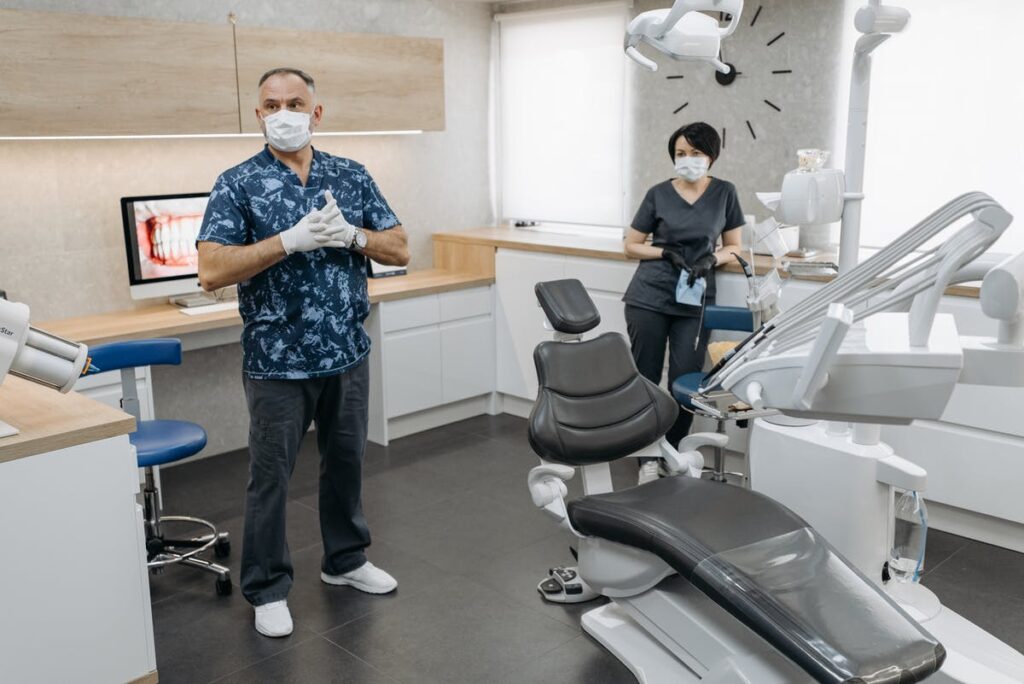
Understanding the Different Types of Dental Implants
Understanding the Different Types of Dental Implants
The bright news is that dental implants might replace lost teeth instead of bridges or dentures to restore your smile. The dentist can often rapidly put implants, a long-lasting solution. Dental implants may complete your smile today and be available in various varieties. Dental implants are a fantastic solution with a high success rate that you should discuss with your dependable dental specialist.
This short article will explain the various types of dental implants offered so that you know to choose the best dental implant.
What Is a Dental Implant?
Dental implants are tiny posts affixed to your jaw and act as the tooth’s root replacement. They join new replacement teeth via an abutment or connector. Titanium is used most often in dental implants.
What Are the Different Types of Implants?
Dental implants and treatments come in a variety of types. Pick whatever types of implants may be best for you with the assistance of your doctor.
Endosteal Implants
This particular type of dental implant is the most popular. It has the appearance of a tiny screw, cylinder, or blade. Prosthetic teeth, or replacement teeth, are held in place by a thin titanium root inserted into your jawbone.
Your doctor could advise an endosteal implant if you use bridges or dentures.
Subperiosteal Implants
In contrast to endosteal implants, subperiosteal implants are positioned on or above the jawbone. A metal post is inserted under your gum to hold it in place and pierces it. When insufficient bone supports the implant, this dental implant is frequently used. The replacement tooth is held by them, positioned on or above the jawbone.
All-on-4 Dental Implants
Your doctor could suggest this option if you require a whole arch of top or bottom replacement teeth or a complete set of replacement teeth. Adults who wish to avoid dentures might consider all-on-4 dental implants as a potential alternative. Your jaw is drilled to receive a tiny titanium screw as the lost tooth’s replacement root. This requires a quick operation. A crown is then attached, creating a tooth that looks and functions like a natural tooth. Since four implants are utilized in each jaw, they are all-on-4 implants.
Your gum tissues must heal for roughly six months before the implants bind to your natural bone. Your dentist at Essenmacher Dental Clinic in Albuquerque may advise a particular diet to speed up the healing process. Once your doctor has implanted your permanent replacement teeth, which should take around six months, you can resume eating normally.
Implant Overdentures
Implant overdentures are an excellent replacement for traditional dentures if you’re healthy enough to have your teeth extracted. In contrast to conventional dentures, overdentures are a more stable option because they are put on top of implants. An enhanced ability to chew food, better pronunciation, reduced suffering, the elimination of denture adhesives, and frequently the use of pre-existing dentures are all benefits of overdentures. Click here to read more about relevant cosmetic procedures.
Implant Supported Bridges
Implant-supported bridges are a fantastic option if you have one or more missing teeth, insufficient jawbone to support an implant, or if a nerve is nearby. An implant-supported bridge is composed of three sections.
- The implant
- The abutment
- The restoration
The good news is that this dental implant can minimize the strain put on your specific implant by teeth grinding.
Regarding the timing for implant-supported bridges, your procedure will begin with a consultation that includes x-rays, dental records, taking impressions, and a CT scan if several teeth are missing. The preliminary procedure will come after this. A second procedure that utilizes a smaller incision and is less complicated than the first will be carried out when the implant has healed. Restoration is the next stage; the final visit will be when a permanent bridge is installed.
What Can I Expect Following a Dental Implant Procedure?
After a dental implant treatment, it is normal to experience some discomfort, bleeding, swelling, and bruising. Dental implants require several appointments with your trustworthy dental professional and a lot of time, patience, and effort. After a dental implant procedure, pain medicine and antibiotics are frequently administered. Maintaining excellent oral hygiene, scheduling routine dental checkups, and avoiding bad habits like chewing ice or hard sweets if you have dental implants are critical. Dental implants have a truly high-success rate, which is excellent news!

